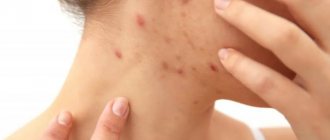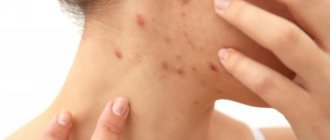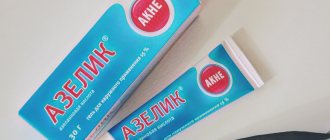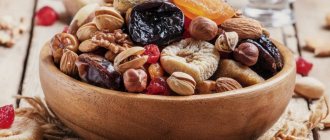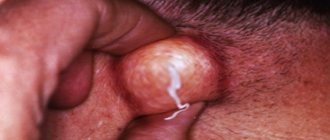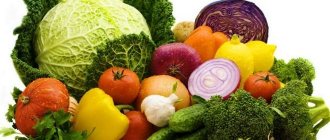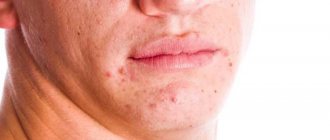January 27, 2021
Acne is an inflammatory disease of the skin, which is caused by changes in the sebaceous glands, as well as their excretory ducts and hair follicles. The causes of acne include heredity, hormonal imbalances, stress, gynecological diseases, taking certain medications, poor environment and unbalanced diet. To normalize sebum production, a diet is prescribed as a comprehensive component of treatment.
Meat products
I will immediately outline one fundamental point regarding meat: it is very important what exactly we use it with. Fatty meat eaten separately from carbohydrates will not cause much harm to our skin. But if we add potatoes or pasta to it, this can affect the composition of sebum and provoke inflammatory elements.
It is better to combine meat with fresh, stewed, boiled or steamed vegetables.
Also try not to overuse red meat: it is dangerous for diseases of the gastrointestinal tract and especially the intestines. Therefore, people who have relatives with bowel cancer should completely exclude this product from their diet. And vice versa, enrich your diet with chicken and fish.
Crunch on an apple, not chips. Putting together a balanced diet remotely Read more
Harm of sweet coffee
But do not think that moderate consumption of an invigorating drink does not provoke the formation of acne. Most people prefer coffee with sugar, which is no less harmful to the skin than frequent consumption of the aromatic drink.
The fact is that under the influence of sweet coffee, insulin production is activated in the human body. This negatively affects the endocrine system, and as a result, the body begins to intensively produce sebum. So, due to a large amount of fat, a person’s pores become clogged and acne quickly begins to appear on the skin.
Dairy
Dairy products contain sugar in the form of lactose. Whole milk leads to the appearance of inflammatory elements in people prone to acne, and when drinking heavily, it promotes additional glycation of proteins in the skin.
Fermented milk products are considered healthier, but in some patients they can cause an inflammatory reaction.
Milk substitutes made from soy, buckwheat and oatmeal also contain a large amount of fast carbohydrates, so these products should be equated to sweet drinks and consumed as rarely as possible.
Unsweetened sweet death. What unobvious foods contains sugar? More details
What should lovers of an invigorating drink do?
However, you can minimize the effect of coffee on human skin if you adhere to the following rules:
- Drink instant coffee as little as possible, as it contains many chemical additives. Drink more coffee beans or ground coffee;
- It is safest to drink a black drink without sugar or cream;
- consume hormone-containing tablets with coffee as little as possible;
- use high-quality cosmetics;
- Buy coffee from well-established manufacturers in the store and make it a rule to drink no more than two cups of an invigorating drink per day.
Coffee can not only bring pleasure to a person, but also harm his body. In particular, it can easily cause acne if a lover of an invigorating drink does not care much about the condition of his skin. Knowing and following basic rules when drinking a drink can significantly reduce the risk of acne.
Return to list of publications
Cereals
Cereals are essential for the health of our body, but they also need to be chosen and consumed correctly. Skip cereals and boiled, slimy porridges in favor of whole grain side-dish cereals with a high content of coarse fiber. Such food will be absorbed more slowly by the intestines and will prevent a sharp increase in blood sugar. Its saturation with nutrients will also occur gradually, which is much more beneficial both for the body itself and for the skin.
Emergency supply of vitamins. 10 healthy products for self-isolation Read more
Salt
A large amount of salty food affects the condition of the skin, this will be especially noticeable on the skin around the eyes.
Salt contributes to the formation of swelling and bags under the eyes. In addition, a large amount of salt slows down the absorption of nutrients and vitamins.
So you need to try to keep within the WHO recommended 5 grams of salt per day. Please note: just because you don't add salt to your food doesn't mean it isn't there. For example, it can be found in corn flakes, baked goods, and sausages.
A cook in love, or How to fix an over-salted dish Read more
Flour products
Today there is a lot of talk about gluten intolerance, but in fact, true gluten intolerance is quite rare and occurs with such a serious congenital genetic disease as celiac disease. Mild gluten intolerance is a topic that has not been studied in official medicine to date; there are no diagnostics or recommendations in this regard. What you should be wary of are flour products with a high glycemic index. The carbohydrate load from them can lead to both inflammatory elements on the skin and accelerate its aging.
Is it possible to get rid of acne if you exclude foods that cause acne* from your diet?
The list of foods that cause acne* is very long. In fact, each body can react individually to junk food. In some patients, while consuming sweets, the clinical picture changes, in others it remains the same.
Dermatologists consider the nutritional factor as potentially influencing the development of acne, but do not dwell on it alone. To the main treatment of acne, the doctor can add a diet as an auxiliary measure, but in general, anti-acne therapy should be medicinal.
One of the drugs that can be prescribed for mild to moderate acne is Azelik®5 gel. Its main active ingredient is azelaic acid; the base contains auxiliary components, including the emollient squalane, which softens and moisturizes the skin5,1.
*acne
Sweets
Excessive consumption of sweets leads to protein glycation. Our skin contains a large amount of collagen and elastin, which, when glycated, change their structure and become unrecognizable to the immune system. It does not recognize old collagen and elastin molecules and does not destroy them, and therefore no new collagen and elastin are produced. This accelerates skin aging, reduces tone, and age-related changes accumulate quite quickly. Therefore, those with a sweet tooth need to be mentally prepared for earlier wrinkles.
Ban on buns and coffee. What not to eat for breakfast Read more
Why does the product cause a rash?
Currently, an extremely controversial opinion has formed regarding dairy nutrition in adults. To substantiate this opinion, facts from the life of wild animals that feed on mother’s milk only in childhood are cited.
Since curd products are made from milk, the “root of evil” should be sought in it. The main reason why acne appears from cottage cheese is due to 2 components:
- Lactose;
- Fats.
According to some scientists, as soon as a child reaches the age of an infant, his body stops absorbing lactose. The substance is broken down into galactose and glucose. It is the first one that is “accused” of:
- Development of cellulite;
- Occurrence of vision problems;
- Salt deposits in joints;
- The occurrence of acne and the progression of acne.
Excess glucose provokes obesity and diabetes. The main skin companions of these conditions are purulent rashes, closed comedones, papules.
Recent studies have proven that milk contains oxidized fat that gets into other products, in particular cottage cheese. This type of lipid disrupts the structure of DNA and contributes to the appearance of free radicals, which provoke many diseases and hormonal imbalances. The consequence of the latter is acne and pimples all over the body.
Currently, research on the effects of milk on health is ongoing. However, people who experience pain, discomfort, and digestive disorders after eating cottage cheese and other fermented milk products are at risk. And this already leads to further formation of redness and pimples.
There are several reasons for this:
- Lactose intolerance or simply consumption in unlimited quantities;
- Hypersensitivity to cottage cheese, which causes disturbances in the digestive system. With constipation, the body is exposed to intoxication, which provokes the formation of papules and pustules;
- Consumption of cottage cheese produced from milk obtained from cattle raised on hormones. This factor disrupts the hormonal balance, which is also one of the main reasons for the deterioration of the skin;
- Eating a product that has expired or was manufactured in violation of the technological process. This causes intoxication and the appearance of a painful rash.
Compared to whole milk, cottage cheese and kefir are less “dangerous” products, however, it is important to understand that they can also provoke acne and purulent pimples.
Vitamins
Today it has become very fashionable to take “vitamins” for any occasion. At the same time, humanity has never eaten as abundantly as it does now. And there had never been such counters overflowing with food before. But, nevertheless, humanity somehow survived and did not die from a lack of vitamins. In rare cases, people found themselves isolated. Modern people cannot have true vitamin deficiency. Except in cases where a person has diseases that prevent the absorption of certain vitamins in the intestines. However, these are special cases that require separate consideration and elaboration. Therefore, under no circumstances should you prescribe vitamins to yourself just in case, on the principle “it won’t be superfluous.” This will not be superfluous only for those companies that produce vitamins and sell them, but for the body it can cause allergic reactions, including skin reactions, as well as other serious diseases. Therefore, the main advice is this: try to keep your diet balanced, including more vegetables and fruits, white meat, fish, eggs, and whole grain cereals. Then the body will receive everything it needs to feel good. And if the body feels good, then so does our skin.
How can poor diet cause acne?
Normally, sebum is secreted by the skin to maintain its protective functions, as it is an important component of the hydrolipid mantle and protects the epidermis from dehydration and negative environmental fusion. With increased work of the sebaceous glands, problematic skin secretes excess sebum, which clogs pores and creates a favorable environment for the development of bacteria and the appearance of blackheads.
In order for the skin condition to improve and acne relapses to decrease, it is important to regulate sebum production, normalize the function of the sebaceous glands and nourish the skin with missing vitamins and elements - a diet for the treatment of acne will do this perfectly.
By solving the problem from the inside, the diet will help the entire body as a whole, and a pleasant bonus to clear skin will be a noticeable improvement in overall well-being. Remember that every body is individual and, if possible, together with a nutritionist, create a personal nutrition plan aimed at combating rashes.
How to cure acne from coffee
Medicines will only help if a dermatologist finds out the exact cause of acne. Inflammations can be dried out at home: with tar soap, tea tree oil, calendula, gauze lotions with aspirin.
Do not crush pimples and blackheads if you do not want to get unsightly scars and potholes on the skin. Don't do masks or scrubs. Avoid coffee and its decaffeinated analogues for a while.
Enveloping aroma. Tart and recognizable taste. Coffee has gained billions of fans on all continents of the globe. However, despite the universal love of the world, coffee also has its detractors, including people with problem skin. Ask why? Here are 3 coffee facts about the dangers of the drink for acne-prone skin.
Is it possible to eat cottage cheese if you have acne?
Nutritionists recommend adhering to strict dietary restrictions if you have a skin rash. It is acceptable to eat cottage cheese for acne if the fat content does not exceed 3%. Other varieties, including homemade products, should be excluded from the diet.
It is important to understand that cottage cheese is one of the least dangerous among dairy products. When consumed in moderation, it provides many beneficial properties and ensures a healthy state of the body. But if there is a direct relationship between the consumption of cottage cheese and the occurrence of acne, you should limit or completely abandon its consumption, making up for the lack of necessary substances with special vitamin complexes or nutritional supplements.
So, to drink or not to drink?
The presented facts are often a consequence of hormonal imbalance in the body. The daily intake of coffee, which will not affect the functioning of the body, is 2-3 cups. But this amount of coffee consumption is not optimal for every person. One may see several rashes on the face after drinking the first cup, while the other may not notice any changes even after 5 cups. Everything is individual! You just need to listen and take a closer look at your body. Wishing you good mornings and healthy skin!
